Are you struggling with how to tell your parents you aren’t going to college?
You aren’t alone.
Today, 94% of parents expect their child to go to college, yet just 69% of high school graduates actually do.
That means that for every 20 high school graduates, 19 have parents who expect them to go to college and 14 enroll.
Those other five?
They’re faced with a potentially difficult conversation.
How do you tell your parents you aren’t going to college?
Here’s how, in 9 easy steps:
- Be Prepared with a Plan
- Create a Fallback Plan
- Anticipate Their Arguments
- Schedule a Time
- Speak Their Language
- Be Confident
- Be Calm and Loose
- LeadFacilitate the Conversation
- Let Them See You Work
Let’s take a closer look at each of these steps.
1. Be Prepared with a Plan
“By failing to prepare, you are preparing to fail.” – Ben Franklin
You’re about to have an important conversation, and you want it to go well.
Before you start mapping out the exact things you want to say, ask yourself a few questions to help clarify your approach:
- What is an ideal outcome from this conversation? What do I hope to accomplish?
- Is this likely to be an emotional conversation for either me or my parents?
- What is my attitude toward this conversation? Am I excited, nervous, or scared? How is that attitude affecting how I prepare for it?
- How do I expect my parents to respond? Why do I expect them to respond that way? Might they respond differently?
- What are my parents’ concerns or fears about me not going to college?
With those questions in mind, start building your case. There are two things you’ll want to cover:
- What are my reasons for not going to college?
- What will I do instead?
Let’s take a look at how you can approach those questions.
1. What Are Your Reasons for Not Going to College?
You asked yourself, “Is college worth it?” and you made the decision not to go.
Why?
Everyone’s answer is unique, but there are a few common reasons:
- College is expensive.
- College isn’t for everyone.
- There are other paths to success, and many successful people didn’t graduate college.
- Technology has made self-directed learning possible, so you don’t need to go to college to get an education.
- Growing fields like digital marketing offer tons of opportunities for people who don’t have formal training or qualifications.
- 90% of employers are open to hiring a candidate without a four-year degree.
You probably have at least a general idea of your reasons, but take some time to sit down and list them out with supporting detail.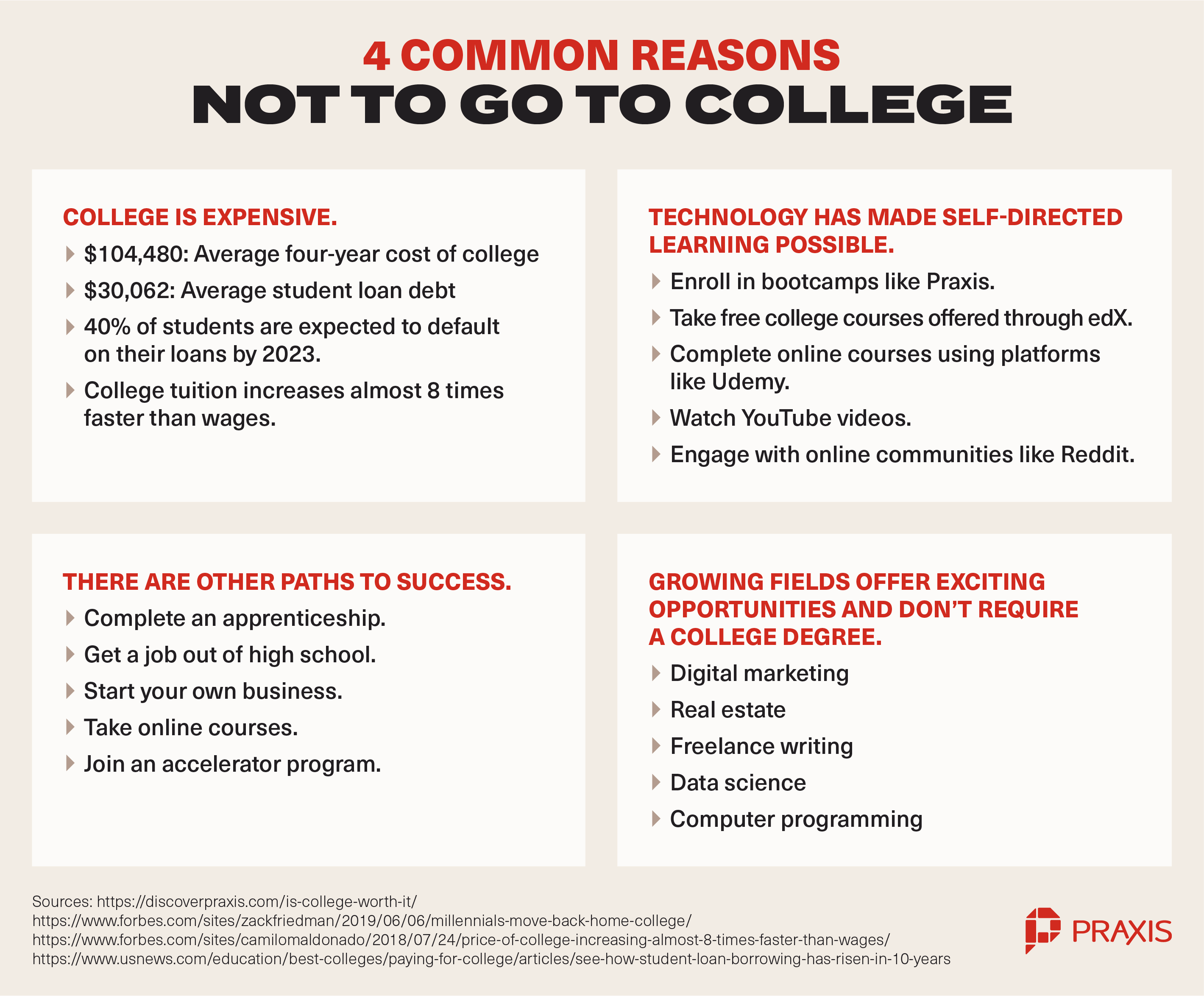
2. What Will You Do Instead?
If you’re planning to forego the traditional four-year college experience, what are you going to do instead?
There are a ton of different college alternatives:
- Complete an apprenticeship.
- Get a job right out of high school.
- Start your own business or monetize a hobby
- Enroll in a bootcamp.
- Join an accelerator program.
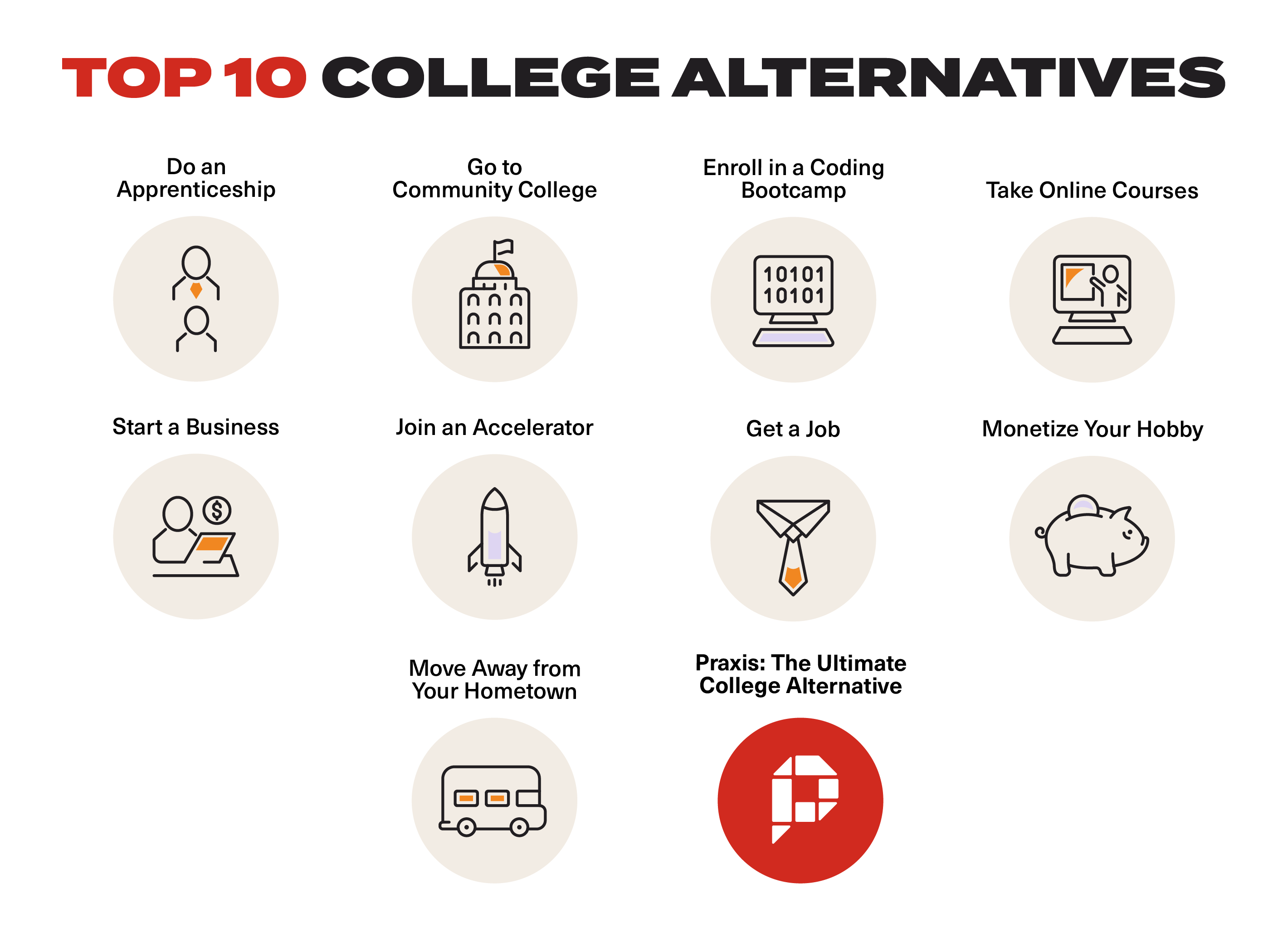
But even more important than “What are you going to do?” is “How are you going to do it?”
Spend most of your time thinking about this question and develop a realistic action plan because this is what your parents are likely to care about most.
Mom: “OK, Lauren. You want to start your own business. How are you going to do that?”
Lauren: “I’m interested in digital marketing, which is a growing field in which 89% of current professionals say you don’t need a college degree. I discovered a bootcamp called Praxis that will teach me the skills I need and help me land a job by networking with successful digital marketers. My goal is to use the skills and real-world experience I gain to start my own marketing agency in four years, right when I’d just be graduating college and looking for my first job.”
That’s a great response by Lauren, but Mom probably has more questions. When you’re building out your “how,” don’t stop there.
Whatever you plan to do instead of college, build a step-by-step roadmap to take you there:
- What are the specific actions or steps you need to take along the way?
- What are the dates (if known) for each step or the general timeline?
- How will each step get you closer to your final goal?
- How much will your plan cost?
- If you won’t be making money right away, how will you pay your bills?
Having a well-defined plan shows your parents that your decision not to go to college isn’t sudden or hasty. You’ve given your future significant thought.
2. Create a Fallback Plan
Mom: “But what if things don’t go according to plan?”
Even if you have a well-defined plan, your parents might still pull out the dreaded, “What if?”
That’s OK. It’s a perfectly valid question and an excellent opportunity to show your parents how mature and serious you are.
Even if your plan is detailed and realistic, give some thought to what you’ll do if things don’t work out as expected.
This part of the planning process isn’t the most fun, but it’ll go a long way toward showing you fully understand every aspect of your decision not to go to college.
It’s also a great time to point out that college isn’t risk-free either.
- The average four-year college costs $104,480 over four years.
- The average student takes out $30,062 in loans to afford it.
- An estimated 22% of those students default on those loans (meaning they’re behind on payments), and that number is expected to rise to 40% by 2023.
All decisions in life come with risk. Be open and honest about the risks associated with your decision and what you’ll do if something unexpected happens.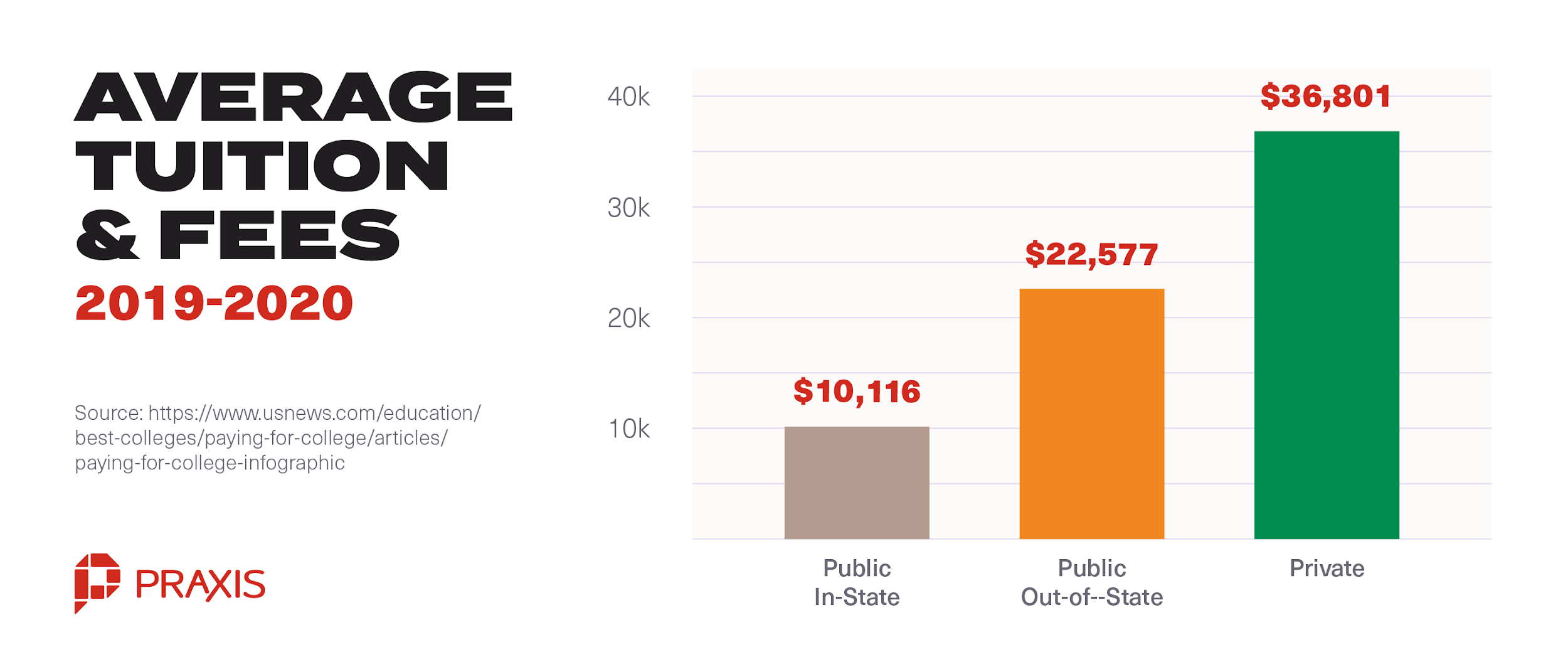
3. Anticipate Their Arguments
This conversation isn’t the first time you’ve spoken to your parents, so you probably have a pretty good idea of how they think. Use that to your advantage by anticipating their arguments or concerns.
What will your parents say about your decision not to go to college?
- You’ll never find a job.
- You won’t make enough money.
- You’ll miss out on the traditional college experience.
- Everyone has student loans. They aren’t a big deal.
- Everyone goes to college. It’s just what you do.
- You’re too young to make such a big decision.
Whether you expect your parents to focus on your career prospects, your earning potential, or your maturity, be ready to show them how you’ve taken their concern into consideration.
4. Schedule a Time
With the planning done, all that’s left is to have the talk.
This isn’t the type of conversation you want to casually bring up while your family is trying to decide what to watch on Netflix. That’s likely to catch your parents off-guard, making them more defensive and closed-minded.
Schedule a time to talk, preferably later that day or within the next few days.
When you approach your parents to schedule the conversation, bring it up gently and convey how important the conversation is to you.
“Hey, there’s something really important to me that I’d like to discuss with you. Do you have time later today or over the next few days to chat?”
That’s a calm, adult way to show your parents two things:
1. This conversation is important to you.
2. You’ve been thinking about it for a while.
Both increase the likelihood of your parents being receptive to what you have to say.
5. Speak Their Language
This might be the best piece of advice in this entire guide.
Talk to your parents in a way they can understand.
It sounds like common sense, but it’s something people of all ages forget to do.
- Are your parents more driven by logic or emotion?
- Are your parents more reactionary or thoughtful?
Understanding how your parents communicate is the most crucial part of trying to communicate with them.
Social Styles are a simple way to identify your parents’ communication style. It’s a simple test that groups people into one of four main personality types:
1. Driver: Direct, assertive, action-oriented, and results-driven.
2. Expressive: Enthusiastic, emotional, talkative, and opinionated.
3. Amiable: Friendly, indirect, agreeable, and casual.
4. Analytical: Thoughtful, logical, cautious, and slow-paced.
Each personality type has its own strengths and weaknesses. For example, drivers’ strengths include their confidence and outgoing nature. On the other hand, they’re often too forceful and don’t listen well enough.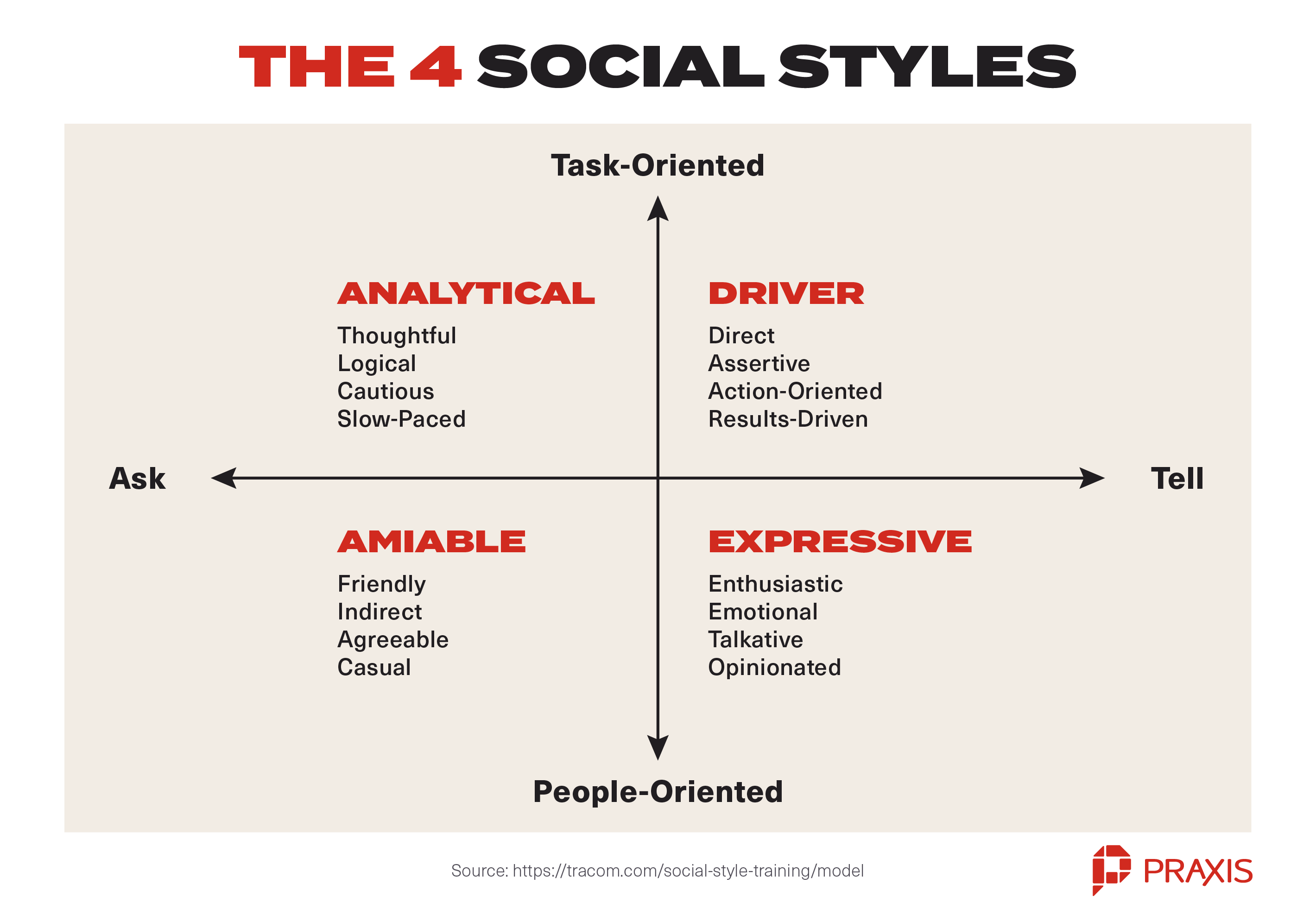
Most people are a blend of all four social styles, but one will be dominant.
- Which social styles are your parents?
- Which are you?
If you aren’t sure, here’s a quick quiz you can take to find out. Try completing it both for yourself and from the perspective of each of your parents. You could even show your parents the social styles quiz before you schedule your talk.
Once you know your parents’ communication style, how do you use it?
Let’s look at how each type might react when their child says they don’t want to go to college:
Drivers tend to arrive at their conclusions quickly and feel very sure about them. They struggle with listening but respond well to action and will care most about whether you have a well-researched plan. They’re also results-oriented, so show them you mean business by executing your plan on schedule.
Expressives tend to be swayed more by emotion than reason. If high costs are a primary reason you want to pursue a college alternative, don’t lead with statistics about the projected 40% of students forecasted to end up defaulting by 2023. Talk about how nervous you are about committing to so much debt when there’s an exciting alternative you can’t wait to explore.
Amiables tend to be agreeable and supportive, so approach the conversation in a friendly, casual way. Above all else, they value your personal security and happiness and want to support you.
Analyticals tend to be swayed more by reason than emotion. If one of your parents is an Analytical, then you’ll want to use that statistic about the projected 40% of students forecasted to default on their loans by 2023. Analyticals also tend to be slow-moving decision-makers who obsess over tiny details, so they’ll want to fully understand your plan, and it may even take multiple conversations.
Do any of those sound like your parents?
As you’re preparing for the conversation, think about how to focus your talking points based on your parents’ personalities. Your parents might even have different personalities, in which case you’ll want to prepare your talking points both ways.
6. Be Confident
You’re an adult who’s given your decision a lot of thought. When having the conversation with your parents, show them the mature, confident person you are.
If you’re nervous and aren’t sure you can speak confidently, keep these five tips in mind:
1. Trust yourself. You’re confident in your decision so don’t second guess yourself.
2. Practice your lines. Recite your talking points repeatedly until you feel comfortable delivering them and are ready to respond to rebuttals your parents may have. Watch out for excessive hesitation, drawn-out pauses, and “umms.”
3. Observe your body language. Make eye contact, stand tall, or sit up straight, and don’t cross your arms. Be relaxed and open.
4. Don’t be arrogant. Arrogance isn’t confidence. Arrogant people tend to over-talk and steamroll others in conversation. Speak confidently while giving your parents plenty of speaking time themselves.
5. Be ready for honest feedback. Remember, you prepared for this!
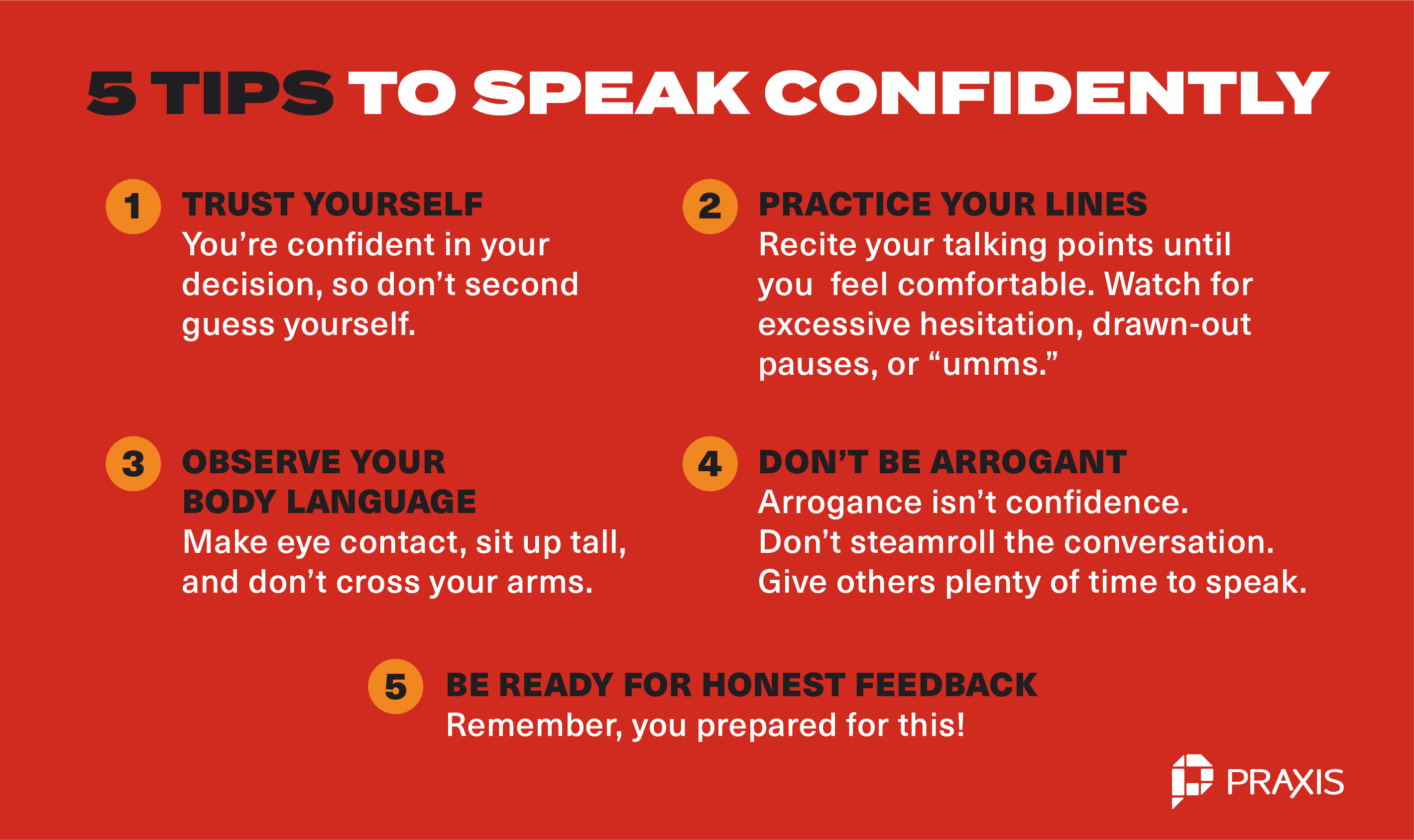
7. Be Calm and Loose
You can’t control your parents’ response, but you can control yours.
If the conversation begins to get emotional or starts veering off course, just keep your cool, stay calm, and remain loose. You don’t need to match your parents’ energy level.
It’s also OK to pause the conversation if you feel it isn’t productive.
8. Lead Facilitate the Conversation
This is your conversation about your life. Show your parents you’re ready to make big decisions with your future by facilitating the conversation.
Note the use of the word facilitate instead of lead.
By facilitating the conversation, you’re working with your parents to make everybody feel heard and understood.
Here are three tips to help you facilitate the conversation:
1. Kick things off with your prepared talking points.
Confidently explain to your parents why you think there’s a better option available for you than the traditional four-year college experience.
2. Listen instead of talk.
Let your parents react and make them feel heard. After your initial speech to kick-off the conversation, you may spend the rest of the conversation doing more listening than talking.
3. Ask questions.
Your parents will probably have many questions for you, but make sure you have questions for them. How does your decision not to go to college make them feel? What do they think about the reasons you’re choosing not to go to college? What do they think about your planned alternative?
Conclude the conversation by asking your parents for their support regardless of whether they agree with your decision.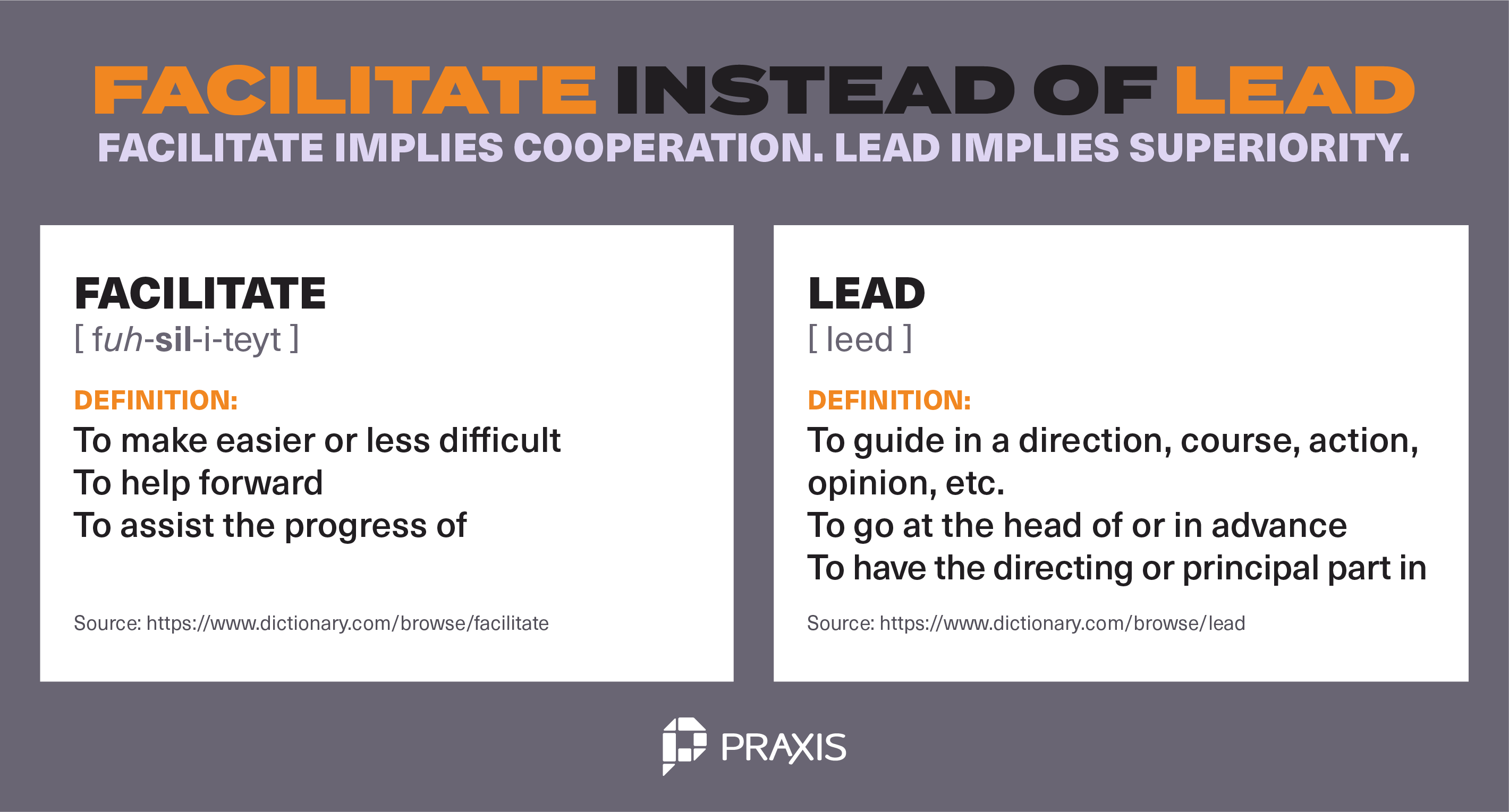
9. Let Them See You Work
Your parents care about you and want you to be both happy and successful. Actions speak louder than words, so show them you know what you’re doing by putting your plan into action.
The Most Important Thing for a Successful Conversation
You don’t need college to find a career you love.
But you do need a clear plan for what to do instead of college.
Praxis is the proven college alternative that puts you in control of your education and career by giving you the tools you need to build your skills and find real job opportunities.
Over the better part of the past decade, we’ve worked with hundreds of participants to find success in exciting fields with huge potential like digital marketing – without a college degree.
Are you excited about spending four years sitting in stuffy lecture halls listening to boring professors?
Or would you rather build your skills and gain real-world experience in just a single year?
Launch your career now by applying for Praxis, today.
December 8, 2020
